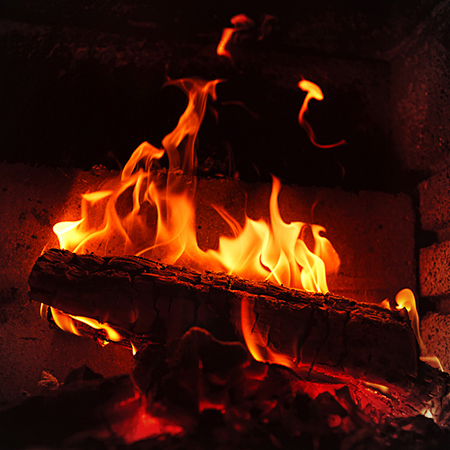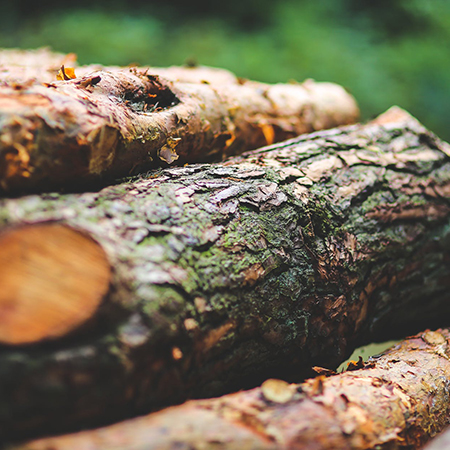Wood Burning Tips & FAQs
 There’s a lot more to fireplace wood than most people realize. The type and quality of the logs have plenty to do with the amount of heat generated but also with how much smoke is produced, which translates into creosote on the inner walls of your chimney. Here we’re going to address a few questions people have about fireplace wood and show you how to get more enjoyment out of your fireplace.
There’s a lot more to fireplace wood than most people realize. The type and quality of the logs have plenty to do with the amount of heat generated but also with how much smoke is produced, which translates into creosote on the inner walls of your chimney. Here we’re going to address a few questions people have about fireplace wood and show you how to get more enjoyment out of your fireplace.
Q: Does it matter where and how I store my firewood?
A: Absolutely. The ideal storage environment is in a place free from moisture (rain/snow) and where air can circulate in and around the stack. Firewood, assuming you buy it by the cord rather than a few logs at a time, should be stored outside on a short rack to keep it off the ground. Cover the top with a tarp, but leave the sides open to the air. The goal is to keep the wood as dry as possible and not encourage the growth of mold.
Q: Why does my firewood smoke so much?
A: Likely because it is unseasoned, or damp. “Green” wood emits huge amounts of smoke and creosote, so always make sure you buy firewood that has been fully dried.
Q: My firewood never burns completely. Why is this happening?
A: Same as above – wood that’s damp ends up with sections that never burn completely during a fire.
Q: Do different species of wood produce different heat temperatures when burned?
A: Yes. Denser hardwoods such as hickory, birch, oak, beech and maple not only burn hotter but also longer. If more heat and longer burn times are desired, go with hardwoods. On the other side, spruce, pine, willow, cottonwood, cedar and other softer woods will burn faster and not generate as much heat.
Q: Is it dangerous to burn dense wood with high temperatures all the time in my fireplace? Could it cause a fire?
A: If your fireplace and chimney are in proper working order, and if you have your chimney professionally cleaned once a year, you shouldn’t have to worry about a chimney fire caused by high temperatures.
 Q: You said damp wood creates more smoke and therefore more creosote in my chimney. If I only burn dry wood, do I still need to have my chimney cleaned every year?
Q: You said damp wood creates more smoke and therefore more creosote in my chimney. If I only burn dry wood, do I still need to have my chimney cleaned every year?
A: Yes, you do. Even if your fires produce “minimal” smoke, there will still be enough creosote formed to pose a fire risk if you neglect regular professional cleaning.
Q: Where can I turn for more information about firewood, burning wood and overall fireplace safety?
A: If you have or can acquire the owner’s manual for your fireplace, you’ll find plenty of good information in there. Another good resource is your local hearth store, particularly if the store sells and services home-heating appliances.
Chimney Specialists of Highland, WI, is here to help you get the most out of your fireplaces and stoves. We not only sell the very best appliances from top manufacturers, we also provide year-round chimney inspection, cleaning and repair services. If you have questions, stop in and see us at 869 Main St., or give us a call at (608) 929-4887.







